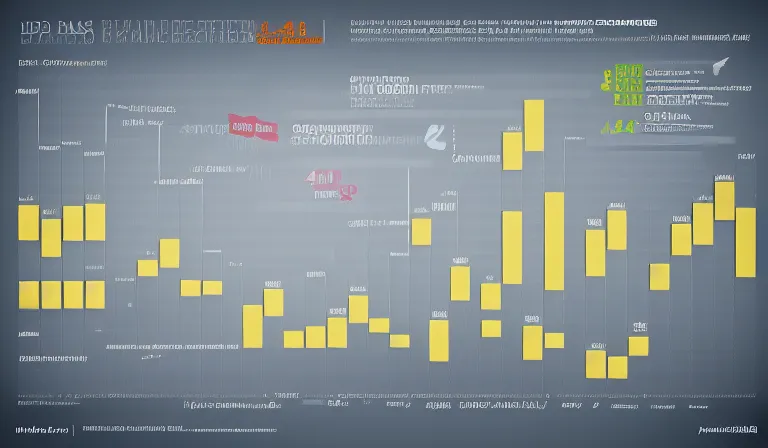Jobs
-


What Does a Web Developer Earn?
Sep 13, 2023 by Natalie SchoonerAs always, the short answer is easiest: On average, according to Indeed, an American web developer earns $81,034 per year.
-


Which is More Important: Hard or Soft Skills for Programmers?
Apr 22, 2023 by Lane WagnerYou’re waiting at the front-desk of Google’s campus in Boulder, Colorado, waiting for your coding interview to start.
-


Do You Need to Blog to Get a Coding Job?
Apr 17, 2023 by Lane WagnerAs the founder of Boot.dev, I’ve worked with countless students who are eager to break into the tech industry.
-


It's Not About the Job Openings
Mar 30, 2023 by Lane WagnerI talk to boatloads of students who are starting to learn to code, and invariably they are hyper-concerned about which programming languages and technologies they should be learning.
-


How can I Get a Job as a Python Programmer?
Mar 27, 2023 by Natalie SchoonerHow to Get a Job as a Python Programmer 🔗 “How much Python do I need to know to get a job?
-


How to Get a Job as a Golang Developer
Mar 20, 2023 by Natalie SchoonerStep 1: Learn Golang. Step 2: Apply for jobs. Step 3: Get accepted. When I started researching this article, that was the first answer that came up on Reddit.
-


Add Libraries and Packages to Your Coding Portfolio
Nov 13, 2022 by Lane WagnerBuilding a job-ready portfolio of coding projects doesn’t happen overnight, but if you’re like most self-taught developers, you’ve likely built up a nice collection of todo apps, calculators, and other toy programs.
-


Trends in Developer Jobs: A Meta Analysis of Stack Overflow Surveys
Oct 24, 2022 by Lane WagnerI’m really interested in the trends we see in the software engineering job market. Sometimes it’s really hard to tell a cohesive and accurate narrative about what’s happening because it just happens so dang fast, and very few people are collecting data on the matter.
-


Do Better in Coding Interviews by Being Confident and Humble
Sep 20, 2022 by Lane WagnerI think we often do a great job of flogging the dead horse of whiteboarding problems when giving coding interview advice.
-


What is a Computer Scientist, and What Do They Do?
Sep 12, 2022 by Lane WagnerAt work, computer scientists build and deploy programs, algorithms, and systems to solve real-world problems. In most tech jobs, they spend the majority of their time working in teams on new software products.
-


How to Use the Best Software Engineering Job Boards
Aug 05, 2022 by Lane WagnerWith so many job boards out there, it can be terribly confusing to know where to start when you’re looking for a programming job - especially if you’re looking for your first programming job.
-


What Are the Career Options in Computer Science?
Aug 01, 2022 by Winston WagnerThe future is bright for career options in computer science with remote work opening up doors that weren’t present before.
-


6 Pros and Cons of Online Coding Bootcamps
Jul 18, 2022 by Natalie SchoonerIf you want to learn to code, there are many strategies to get your coding skills from non-existent to employable.
-


How to Build the Best GitHub Profile for Your Job Search
Mar 04, 2022 by Lane WagnerI’ve reviewed a lot of resumes, both as an engineering manager and in the monthly resume workshops we do in the Boot.
-


Coding Interviews - Why you shouldn't give homework
Nov 18, 2021 by Lane WagnerA while back I went through the interview process at a company I won’t name here.
-


Which is Worth It, Coding Bootcamp or a Computer Science Degree?
Mar 29, 2021 by Zulie RaneWhen you’re in a position of wondering, “Is a coding bootcamp worth it?” you should look at several factors.
-


Can You Get a Programming Job with Just an Associate's Degree?
Mar 22, 2021 by Lane WagnerChanging majors is a tale as old as time. A degree that would normally require four years to complete can quickly turn into a more expensive endeavor that takes five or six years for a student that can’t decide what they want to study.
-


Where Can You Get a Programming Certificate Online?
Mar 14, 2021 by Zulie RaneThere are two main options to get a programming certificate online - online courses and universities.
-


The Two Classes of Software Engineer
Mar 05, 2021 by Lane Wagner“Software engineer” has become a ubiquitous term for people who write, deploy, architect, or sometimes even simply test code.
-


Top 8 Tricks to Learn Coding Fast
Feb 22, 2021 by Lane WagnerThe journey to becoming a gainfully employed software engineer can feel long. The good news is, you can learn smarter not harder.
-


Is There a Case for Programmers to Unionize?
Feb 15, 2021 by Lane WagnerI’ve seen a lot of buzz recently about software developers wanting to form unions. I’m particularly interested in this topic while I’m #indiehacking boot.
-


The 8 Crucial Mistakes Holding You Back From a Programming Job
Jan 18, 2021 by Zulie RaneIf you’re reading this article, you’re well aware of the great benefits that come with a programming job - high salaries for programmers, an expanding job market, exciting opportunities.
-


The Best Ways To Get a Programming Job with No Experience
Jan 06, 2021 by Winston WagnerIt sounds like a pipe dream. A well-paid programming job, with no experience? Get out of town.
-


Why Students Struggle Getting a Job After Coding Bootcamp
Nov 19, 2020 by Zulie RaneImagine, like so many folks, that you decide what you want to study when you’re just 18.
-


How Long Does It Take To Learn To Code?
Nov 10, 2020 by Zulie RaneThere are so many obvious reasons to learn to code: freelancing opportunities, career advancement, salary increase, and personal satisfaction among others.